Quy Hop District (Nghe An) has the largest white stone mine in the country. At times, the supply of stone mining cannot meet the demand, and all the production is sold out. The expensive white stone is considered “white gold” and is exported to many countries around the world .
However, since the beginning of the year, many stone mining enterprises have had to close their mines and production has stagnated. Goods have piled up in warehouses, from factories to staging areas. Some enterprises are operating at a low level, mainly to maintain machinery and generate revenue to support workers. The number of units still in production can be counted on the fingers of one hand.
Speaking with VietNamNet reporter, Mr. Tran Duc Loi, Vice Chairman of Quy Hop District People's Committee, said that the whole district has 79 stone quarries with valid licenses for 64 enterprises.
The most difficult thing is fuel because of difficult transportation, not to mention the sharp increase in gasoline prices also causes profits to drop.
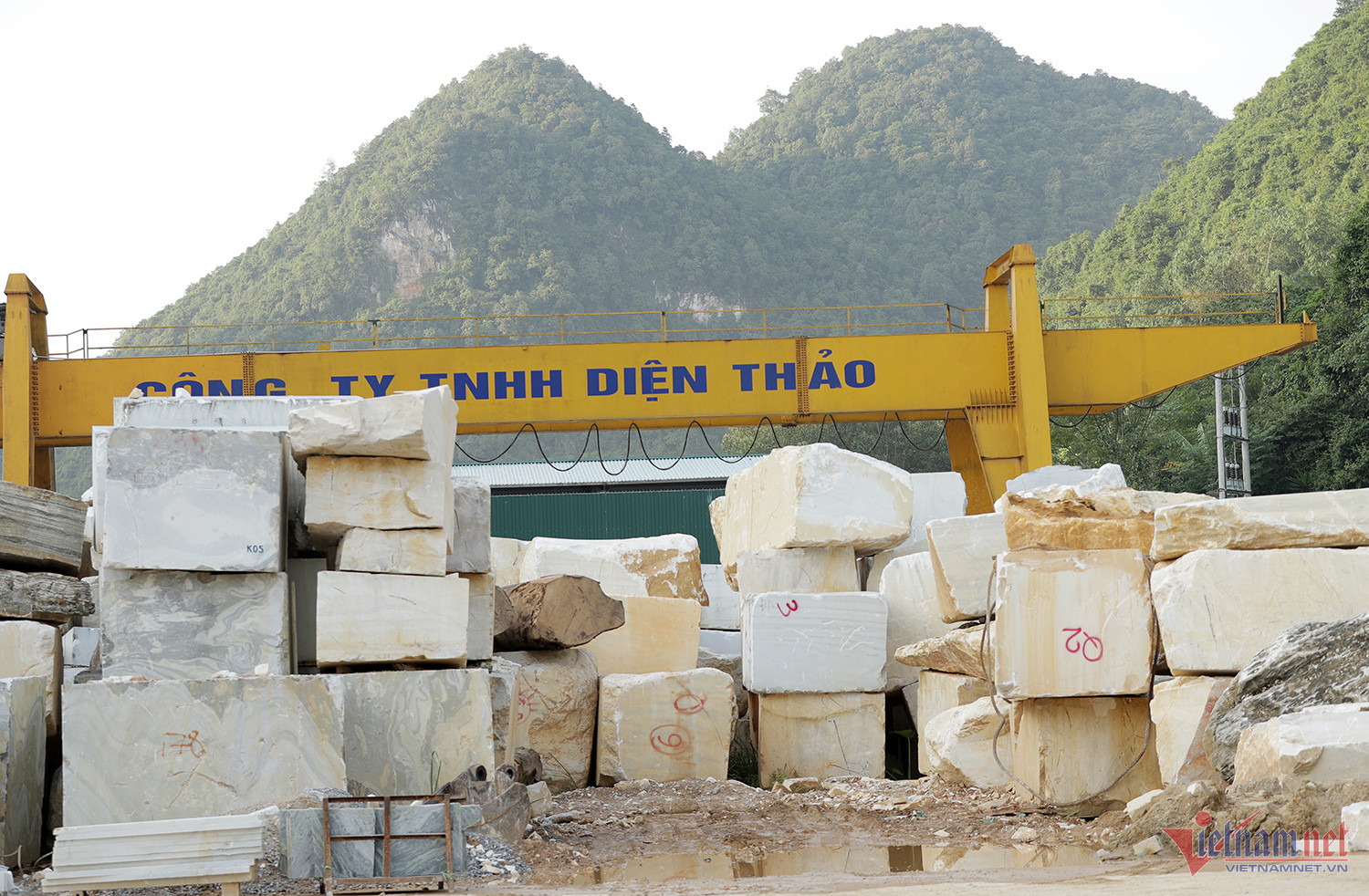

"The authorities' tightening regulations on oversized and overloaded vehicles have increased the pressure on freight costs for businesses. After the Covid-19 pandemic, there was a war between Russia and Ukraine and the Gaza Strip, so mining and exporting faced many difficulties. This caused a series of businesses to close mines, and thousands of workers lost their jobs," Mr. Loi shared.
Of the 79 local stone quarries, 43 units (more than 50%) have had to stop production; only 4-5 units are still able to maintain export activities.
“There are businesses that have been producing stone for the past two years but have not been able to sell it, and some that have been able to export have not made a profit because of high costs. Therefore, although Quy Hop district's budget revenue this year has reached the assigned plan, it has decreased sharply compared to 2022," Mr. Loi informed.
Mr. M. - representative of a white stone mining and processing enterprise - shared that the main import market for white stone is Muslim countries. Even before the war, the demand for this type of stone has decreased sharply. Up to now, many export orders have been forced to stop.
According to Mr. M., the demand for industrial stone powder has decreased sharply, and high export taxes have made it impossible for many businesses to sell their products. For example, the price of 1 ton of superfine stone powder is more than 400,000 VND, while it is subject to a 25% export tax and a 15% resource tax, along with many other taxes. Therefore, many factories in Bangladesh have switched to buying goods from Malaysia. Meanwhile, the Guangxi market (China) has turned to using domestic goods, no longer importing.
Therefore, at his company, production in the first 10 months of 2023 decreased by 40% compared to the same period last year. "Hundreds of workers were forced to take turns off, and their income was affected," said Mr. M.
Some pictures of the limited exploitation of businesses in Quy Hop:
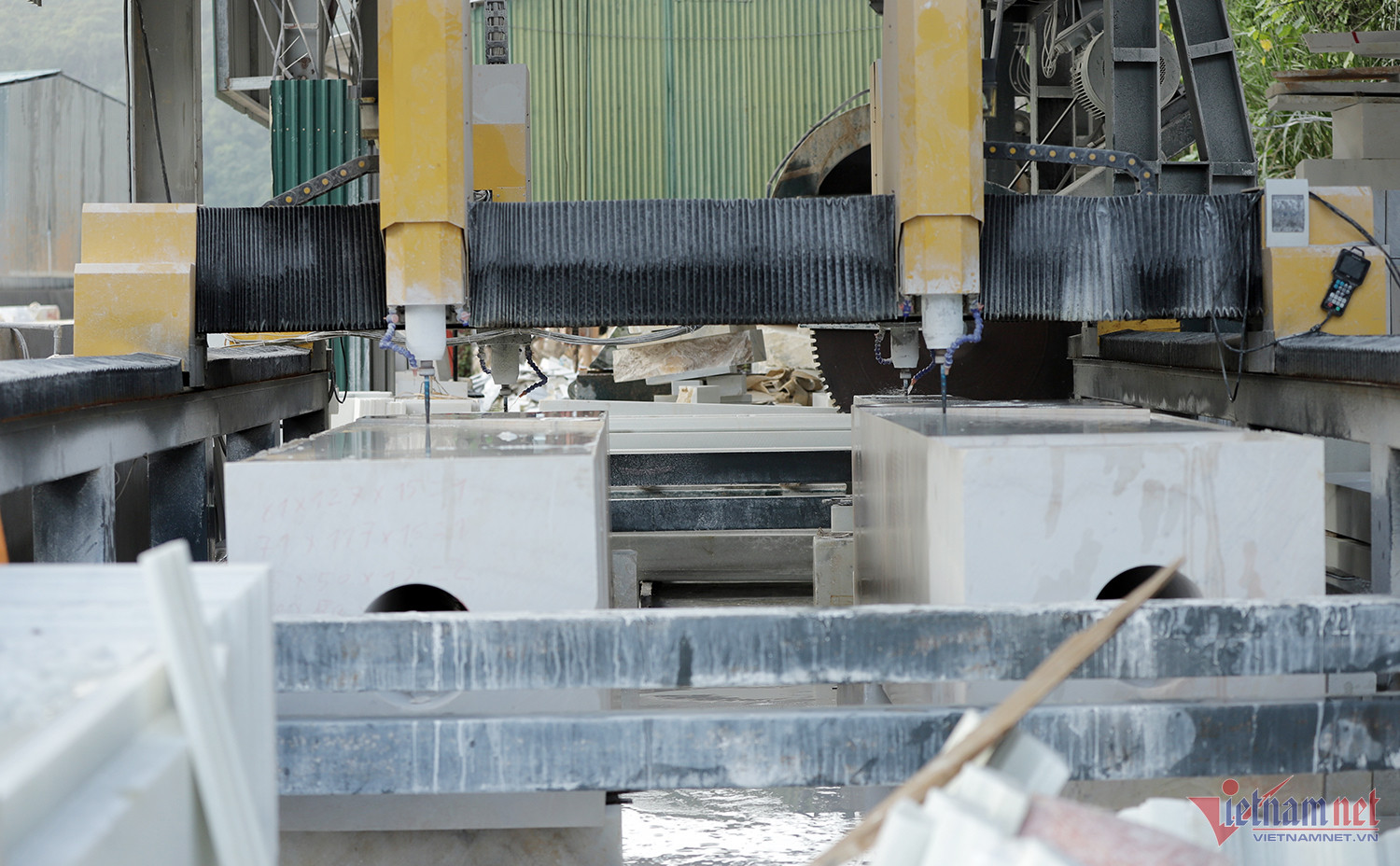
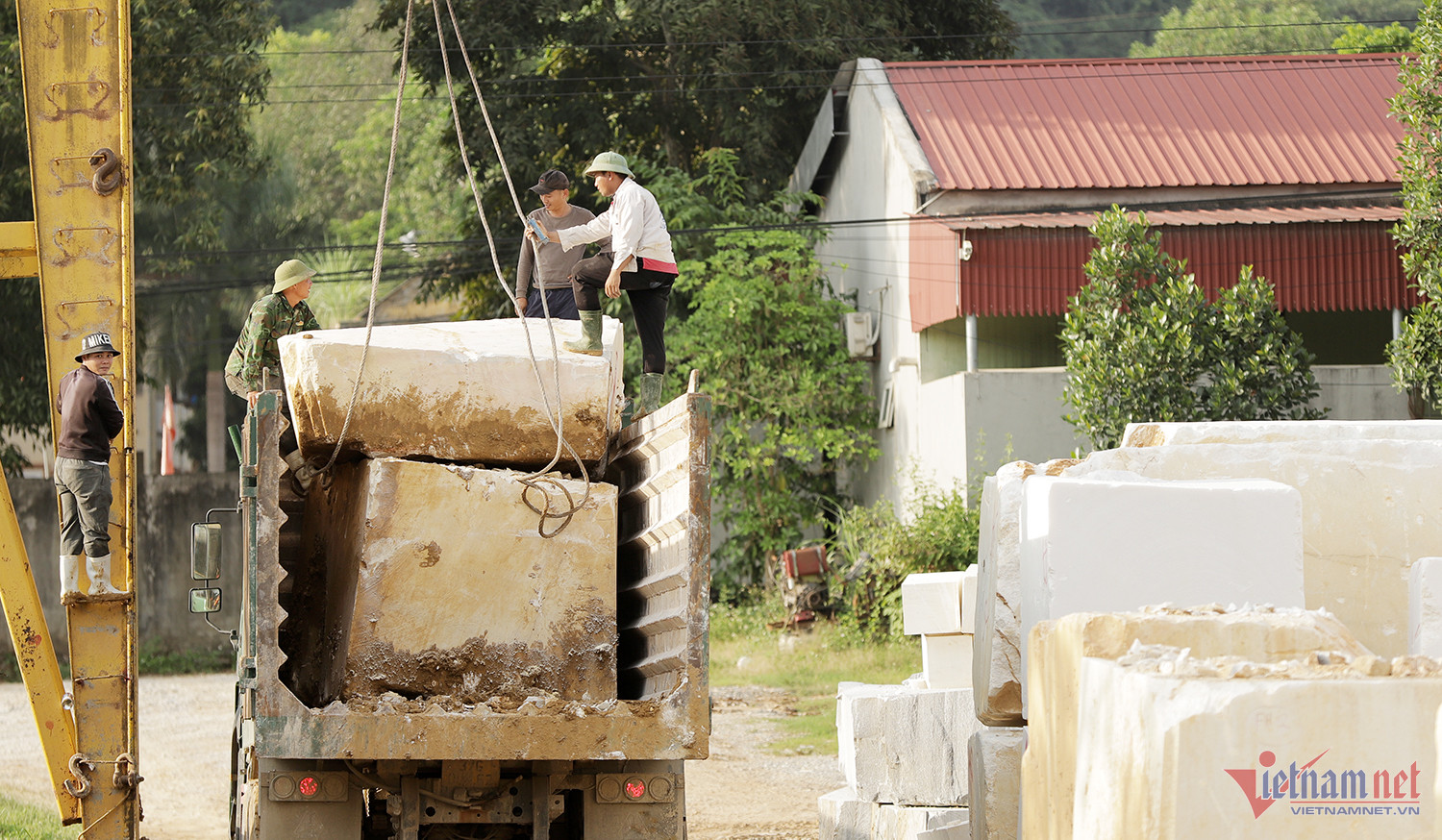
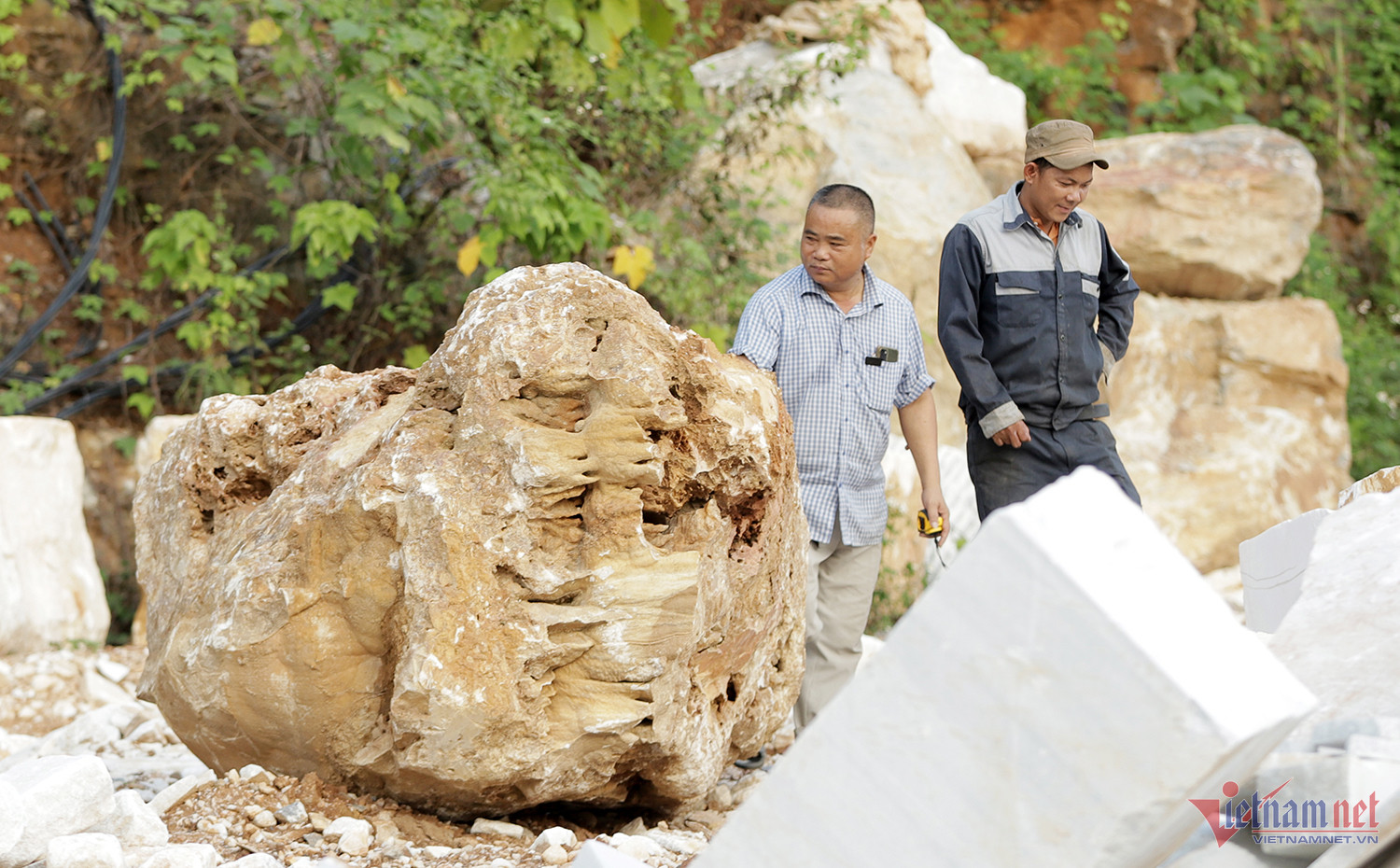
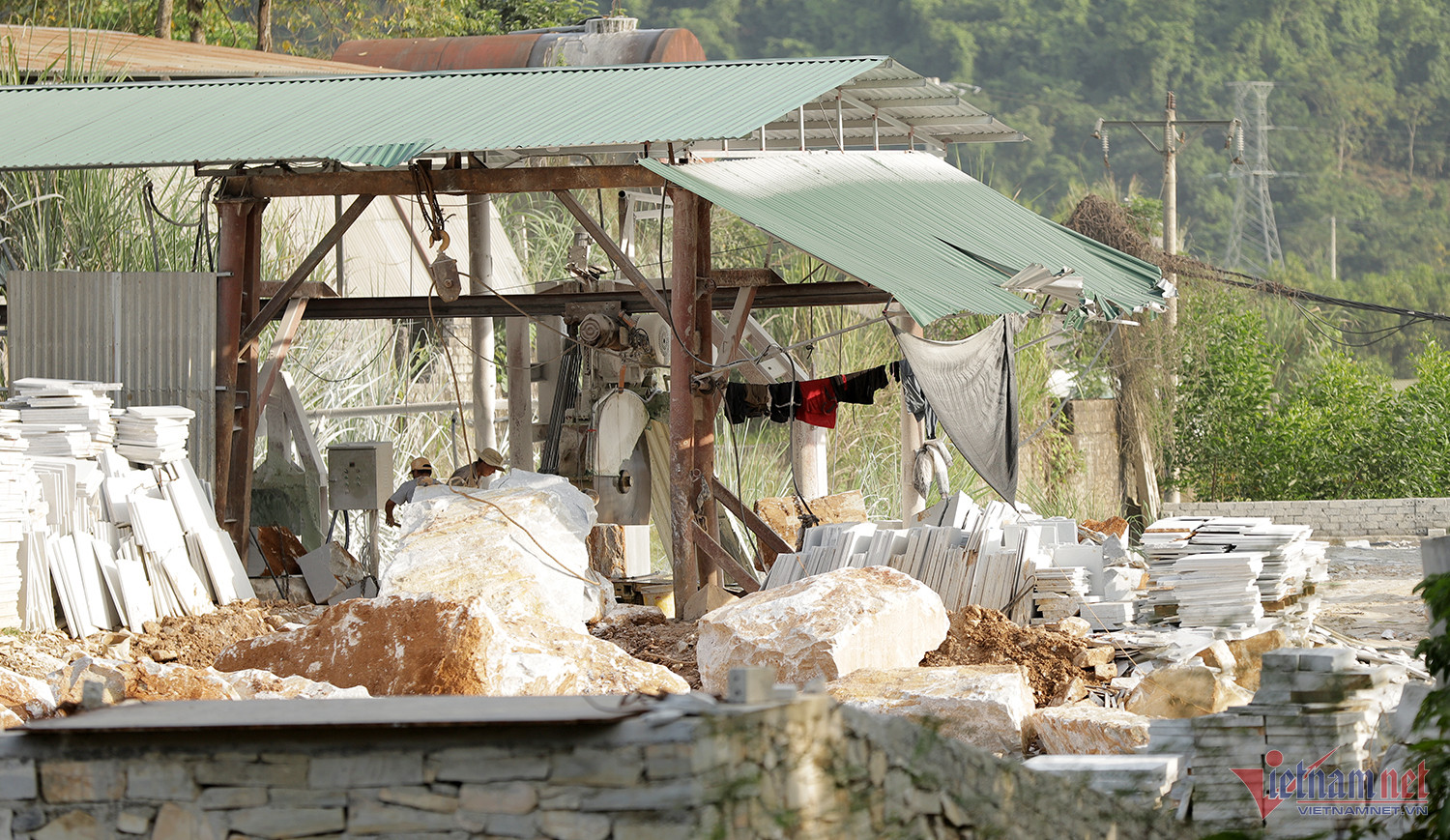
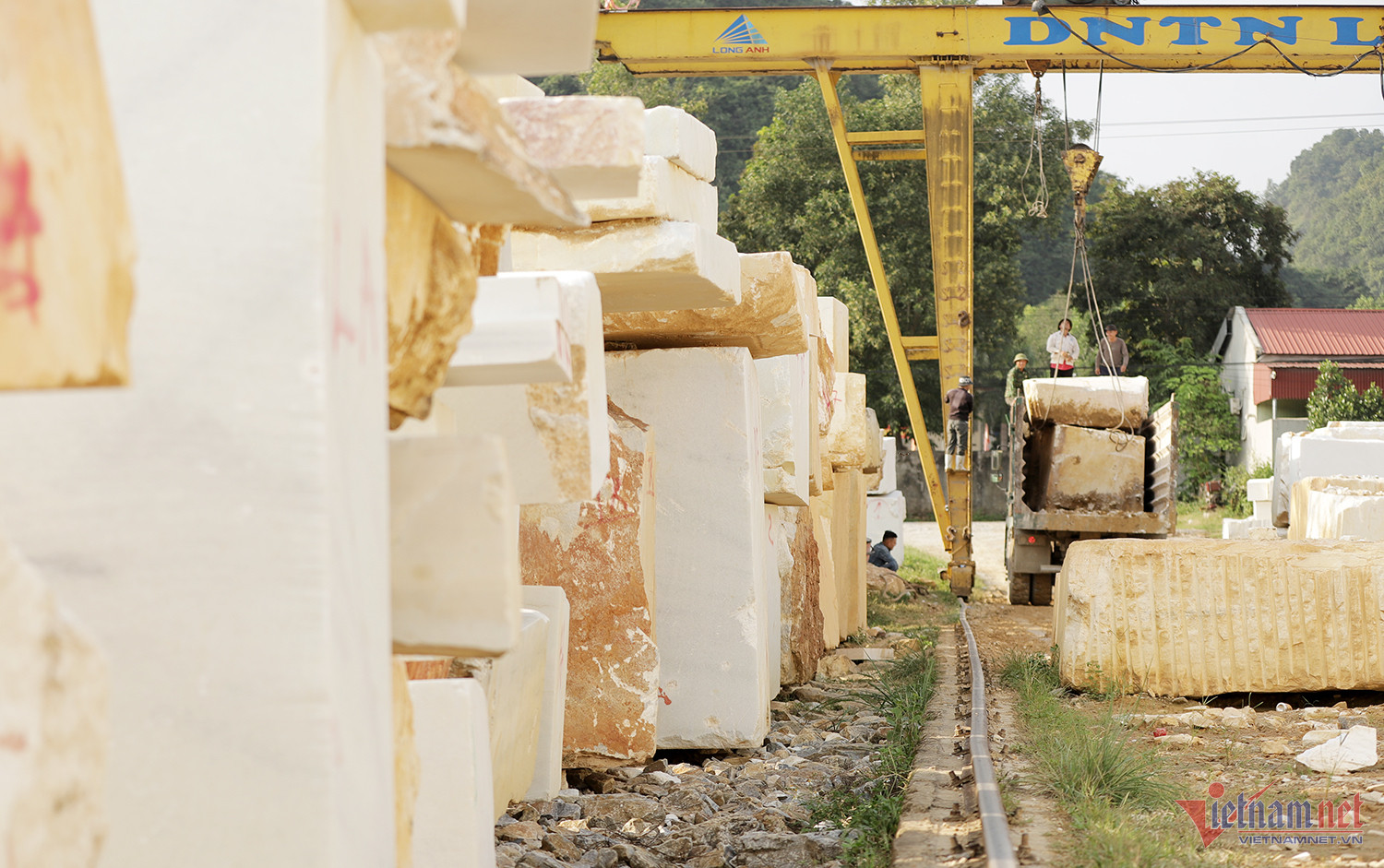
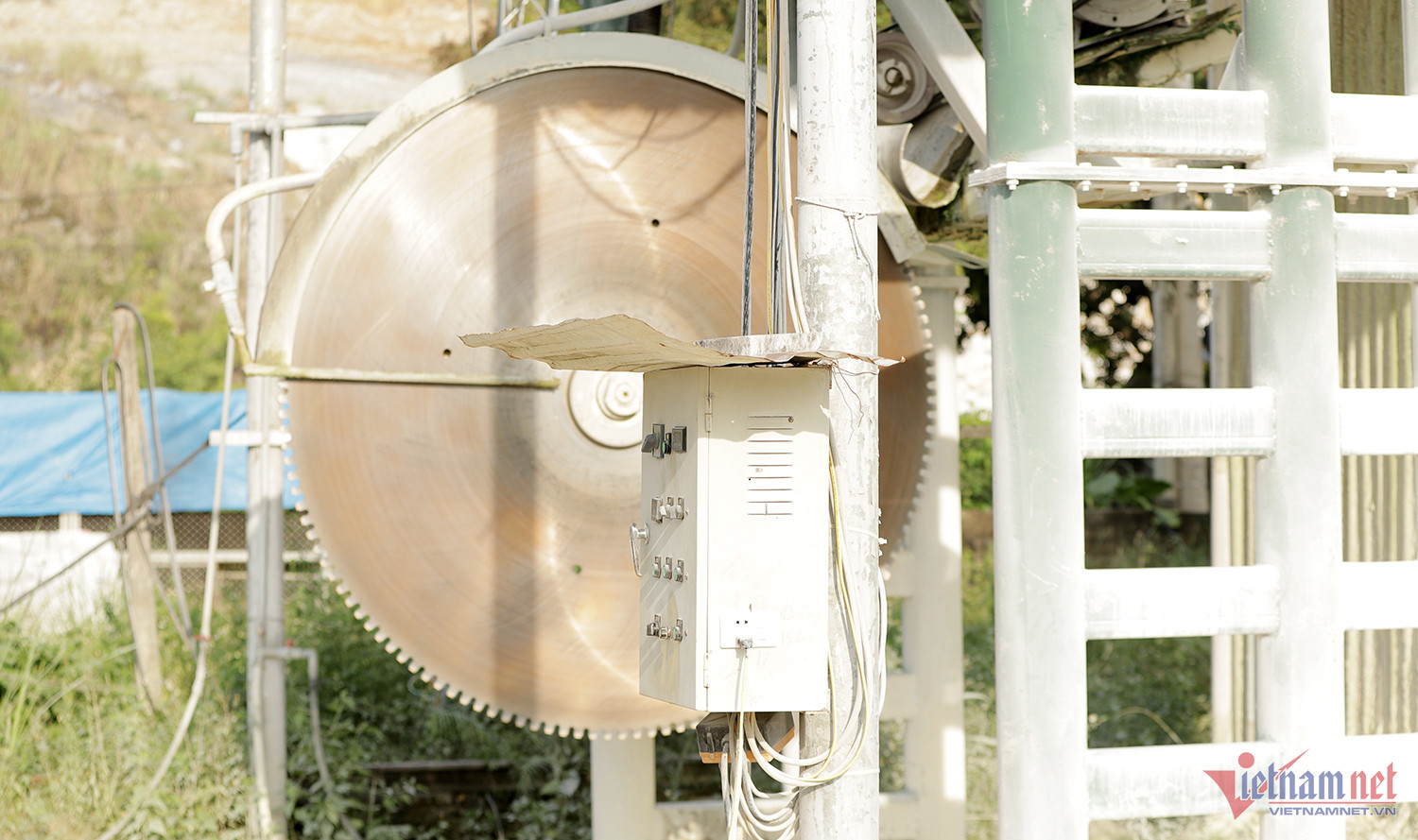
Source


![[Photo] Readers line up to visit the photo exhibition and receive a special publication commemorating the 135th birthday of President Ho Chi Minh at Nhan Dan Newspaper](https://vphoto.vietnam.vn/thumb/1200x675/vietnam/resource/IMAGE/2025/5/17/85b3197fc6bd43e6a9ee4db15101005b)


![[Photo] More than 17,000 candidates participate in the 2025 SPT Competency Assessment Test of Hanoi National University of Education](https://vphoto.vietnam.vn/thumb/1200x675/vietnam/resource/IMAGE/2025/5/17/e538d9a1636c407cbb211b314e6303fd)

![[Photo] Prime Minister Pham Minh Chinh chairs meeting on science and technology development](https://vphoto.vietnam.vn/thumb/1200x675/vietnam/resource/IMAGE/2025/5/17/ae80dd74c384439789b12013c738a045)






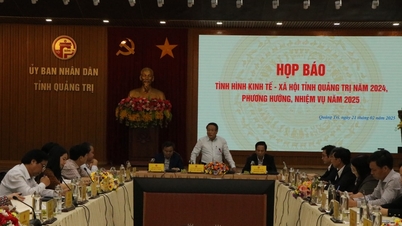






















![[Photo] Nearly 3,000 students moved by stories about soldiers](https://vphoto.vietnam.vn/thumb/1200x675/vietnam/resource/IMAGE/2025/5/17/21da57c8241e42438b423eaa37215e0e)





















































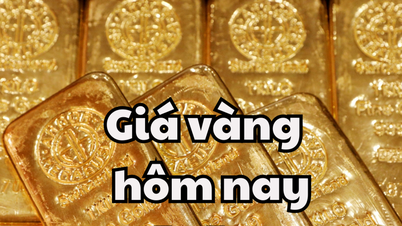
















Comment (0)